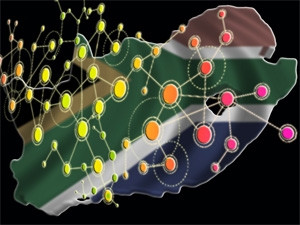
The number of Internet users worldwide continues to climb, with the three billion mark expected to be surpassed soon - yet the majority is still not online.
This is according to the Internet Society's (ISOC's) inaugural annual report on the state of the Internet globally. The Global Internet Report finds there are still significant challenges that must be addressed in order to ensure the world's population is connected to the Internet.
ISOC president and CEO Kathy Brown says progress towards the society's vision of Internet for everyone is happening at a rapid pace around the globe. "However, much development work still remains to bring the economic and social benefits of the Internet to all people and to make sure everyone has quality access. We hope this annual new series of reports contributes to how we all focus on the challenges to bring the benefits of the Internet to everyone."
According to the United Nation's (UN's) latest State of Broadband report, as of September last year, 41% of South Africans used the Internet - a percentage that placed SA fifth in Africa and 92nd in world Internet use, and above the world average of 35.7%.
The UN said last year that wireless broadband and related industries could potentially generate $7.2 billion (about R77 billion) and a further 28 000 jobs in SA by 2015.
In the ISOC report, chief economist Michael Kende identifies the benefits of an open Internet for those already online and the two distinct groups of non-Internet users - those who are not online because they cannot afford it; and those who are not due to lack of interest and understanding.
Cost aspect
The affordability of Internet services clearly has a significant impact on service uptake, notes ISOC. The UN Broadband Commission has said entry-level broadband service should not cost more than 5% of average monthly income by the end of 2015.
While the overall majority of countries measured for 2012 reached this target, most developing countries have not.
"There are still countries today where the cost of broadband is greater than the average income of its citizens, and others where seeming affordability is masked by deep income inequality, putting the Internet out of reach for many."
Language barrier
ISOC points out that, based on licensing agreements, not all content is available in all countries - a fact that has an impact on the ability of the users to access content of interest.
Another significant issue limiting Internet participation, according to ISOC, is the availability of locally-relevant content. English-speaking Internet users are currently over-represented by a wide margin. While 27% of Internet users are classified as primarily English-speaking, more than 55% of Web sites offer content primarily in English. By comparison, Chinese speakers make up 25% of Internet users, but only 3.3% of Web sites offer content primarily in Chinese.
Finally, the report highlights issues that impact existing users. "Revelations about massive global surveillance are raising basic questions about trust and privacy online."
Share